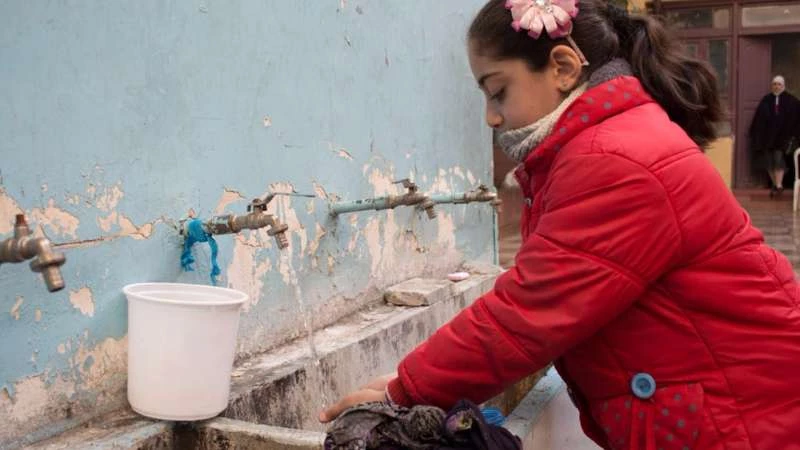Through its spokesperson Christophe Boulierac, UNICEF has voiced out concerns about the quality and price of the alternative water supplies that residents have been using since the water crisis started.
As running water is almost nonexistent, many residents have turned to private distributors, where neither price nor quality are regulated, prompting concerns about the risk of water-borne diseases among children, according to UNICEF. In many areas, families are paying up to for only 1,000 liters of water.
Also, children are taking on the burden of water collection for their families and most children had walked at least half an hour to collect water from the nearest mosque or public water point, says UN children’s fund. More, children waited in line for up to two hours in freezing temperatures.
Sabotaging and denying water is a war crime
For his part, Jan Egeland also warned of water shortages in Damascus that could risk the spread of disease.
"We reckon it to be 5.5 million civilians now being affected by the water shortages, meaning that they would not have any tap water anymore, most of them...This has been the reality now for two weeks. It cannot continue like this," Egeland said.
He told reporters that springs, pipelines and pumping stations have been affected and there is possible oil pollution, raising questions of sabotage.
"To sabotage and deny water is of course a war crime, because it is civilians who drink it and civilians who will be affected by water-borne diseases and other, if it’s not restored," Egeland said.
Assad regime and its allied Shiite mercenaries have been bombing Wadi Barada in Damascus western countryside where the main source of drinking water is located, Ein al-Fijeh spring.



التعليقات (0)